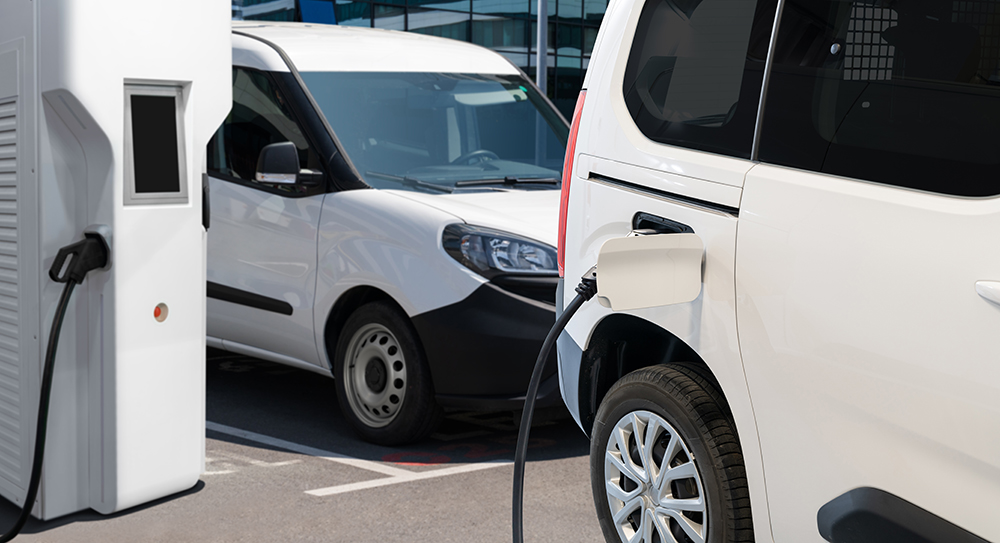
Harris County Approves $710K in TCEQ Grants to Add 20 Electric Vehicles to County Fleet
On June 26, 2025, the Harris County Commissioners Court unanimously approved $710,800 in clean fleet grantsfrom the Texas Commission on Environmental Quality (TCEQ). The funding, secured through the state’s Governmental Alternative Fuel Fleet (GAFF) Grant Program, will support the purchase of 20 electric vehicles and a DC fast charger for several county departments, according to commissioners court documents.
The three separate grants, each awarded with no local match required, will benefit Universal Services, the Harris County Sheriff’s Office, the Office of the County Engineer, and Harris County Precinct 4. The motion to approve the grants was unanimously approved by the court with no opposition. Harris County Precinct 4 Commissioner Lesley Briones made the motion, which was seconded by Harris County Precinct 3 Commissioner Tom Ramsey.
What's Included in the Funding
The awards will fund the following clean transportation assets:
-
$230,000 (Contract ID: 582-25-71193): 10 Class 2/3 electric vehicles
-
$230,000 (Contract ID: 582-25-71194): Another 10 Class 2/3 electric vehicles
-
$250,800: One electric bus, two electric pickup trucks, six Class 1 sedans/SUVs, and one DC fast charger
These funds were approved through the TCEQ’s TERP (Texas Emissions Reduction Plan) initiative, which provides financial incentives to reduce nitrogen oxide (NOₓ) emissions from fleets statewide.
Mobile Sidebar Ad
What Is GAFF? How Harris County Benefits from Texas Fleet Electrification Grants
The Governmental Alternative Fuel Fleet (GAFF) Grant Program provides competitive funding for state and local government entities to purchase or lease new vehicles that run on:
- Electricity (including plug-in hybrids)
- Compressed natural gas (CNG)
- Liquefied petroleum gas (LPG)
- Liquefied natural gas (LNG)
- Hydrogen fuel cells
Fleet operators must manage at least 15 vehicles to be eligible. Award amounts are pre-set by vehicle type: $17,000 for Class 1 vehicles (sedans/SUVs), $23,000 for Class 2-3 (light-duty trucks), and up to $80,000 for transit buses.
In addition, up to 10% of funds can be used for infrastructure like electric charging stations—such as the DCFC unit included in Precinct 4’s grant.
Why It Matters: Texas Faces Serious Air Quality Challenges
According to the American Lung Association’s 2024 “State of the Air” report, the Houston metro area is the 7th most ozone-polluted city in the U.S., with Harris County receiving an “F” grade for ozone levels. Between 2021 and 2023, the region averaged 34.8 days per year with unhealthy ozone readings.
These pollution levels contribute to asthma, cardiovascular stress, and respiratory illnesses—particularly among children and seniors. Transportation is a major driver: 48% of Texas’ NOₓ emissions come from on-road and non-road vehicles, per TCEQ data.
The TERP program, launched in 2001, aims to reduce this pollution by incentivizing the retirement of older gas- and diesel-powered vehicles in favor of low- and zero-emission alternatives.
Mobile Sidebar Ad
What’s Next?
The approved funds will move to procurement in the upcoming fiscal year. County departments will begin deploying the electric vehicles and charger, contributing to Harris County’s broader sustainability and health goals.
To learn more about the GAFF and TERP programs, visit www.tceq.texas.gov.
For ongoing coverage of local government decisions and public policy developments in Harris County, follow My Neighborhood News.
 Tiffany Krenek has been on the My Neighborhood News team since August 2021. She is passionate about curating and sharing content that enriches the lives of our readers in a personal, meaningful way. A loving mother and wife, Tiffany and her family live in the West Houston/Cypress region.
Tiffany Krenek has been on the My Neighborhood News team since August 2021. She is passionate about curating and sharing content that enriches the lives of our readers in a personal, meaningful way. A loving mother and wife, Tiffany and her family live in the West Houston/Cypress region.

